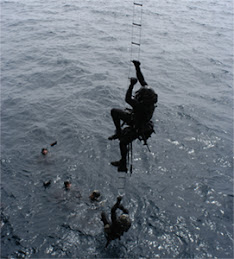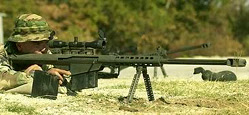di petik dari http://www.hyperhistory.net/apwh/essays/cot/t0w24espionage.htm
( Ini pendapat Mr Rit Nosotro)
Espionage has played an important role throughout history. Intelligence provided by spies has saved friends and led to the death of foes. Espionage is initiated by government organizations, business corporations, and private citizens. A spy may learn of secret technologies or personal lifestyles. Captured spies may land themselves and their employers in prison. Some pay for espionage with their life.
Espionage goes back to Genesis. Joseph accused his brothers of being spies in order to get his whole family safe in Egypt. The next recorded instances of espionage took place after the Israelites had escaped from the servitude of Egypt. They were led by Moses to a promised land where he decided to send several men to spy out the land. The most famous of these men were two called Caleb and Joshua, for although their report acknowledge that the inhabitants had formidable strength they held to the promises of God rather than the fears of the other men. Forty years later the Hebrews returned and two spies were hidden on the roof of a wall by a prostitute named Rahab who become famous in the linage of Christ Jesus.
Another instance of spies appearing history took place approximately 500 years before the birth of Christ, in the far-eastern country of China. The general of China's army at that time, Sun Tzu, was very learned in the arts of war. He wrote (possibly with the help of other authors) a book entitled The Art of War. In the book he highlighted the importance of spies and espionage in war, among other things. From a very early time, China condoned the use of spies and espionage to obtain intelligence.
There also exists evidence showing that the ancient Roman empire used espionage. On the day of his assassination Julius Caesar received a notice from a spy informing him of the plan. Unfortunately, Caesar disregarded the warning and was killed. There also exists other evidence that the Roman military made use of scouts and other forms of intelligence-gathering personnel.
Joan of Arc, a medieval leader of the French forces in the Hundred Years War, protected the French throne from the English until Pierre Cauchon de Beauvais, a spy for the English, betrayed her. Within several hundred years, in the late 1500's, Queen Elizabeth I of England also had a comprehensive intelligence system in place.
Espionage also played a great part in the American revolution. Two of the most prominent spies of the time of the revolution are Nathan Hale and Benedict Arnold. The first held a job as school teacher before the revolution; when gathering intelligence from the British forces it was natural for him to disguise himself as a school teacher. Upon capture, Hale uttered these words that have become so famous, "I only regret that I have but one life to lose for my country." Benedict Arnold remains another famous spy from the time period of America's revolution. After some amount of discontent with his place in the military, he began a treasonous correspondence with an enemy contact named Sir Henry Clinton. A man by the name of John André discovered the plan, but unfortunately Arnold managed to escape. Many others served as spies during the American Revolution
In World War I Mata Hari of Germany gained a great deal of important information for her country. Originally from Paris, she seduced many important French officials, gaining much important information from them. The French government arrested her in 1917, and soon after they executed her. By World War II the United States had become more active in the espionage scene. They employed a baseball player by the name of Moe Berg as a spy. His assignment remained simple: discover how close the Germans were to finishing an atomic bomb. He completed this task well, finding out that the Germans were not close to finishing development on a nuclear weapon.
One of the most espionage-centric wars in history, the Cold War, took place between the USA and the USSR following the end of World War II. During the Cuban Missile Crisis and at other times, many feared the tension would eventually escalate into a nuclear war. During the Cold war, the armies of the involved nations rarely battled; instead there existed a battle between the intelligence agencies of each nation. These agencies made use of many new technologies in this war of intelligence, including spy aircraft, eavesdropping tools, and many other devices.
Many nations have made use of espionage throughout the history of the world. Beginning in Bible times and continuing until modern times, the art of espionage has become much more refined than when it was first used. As we have seen, the use of surveillance can change the course of wars, and it can even sometimes incite the war itself. Its use has caused a great deal of damage and good, depending on the side one is on. The role of espionage agencies will become increasingly important as time goes on, as many lives can be saved through careful use of intelligence.
Langgan:
Catat Ulasan (Atom)








Tiada ulasan:
Catat Ulasan